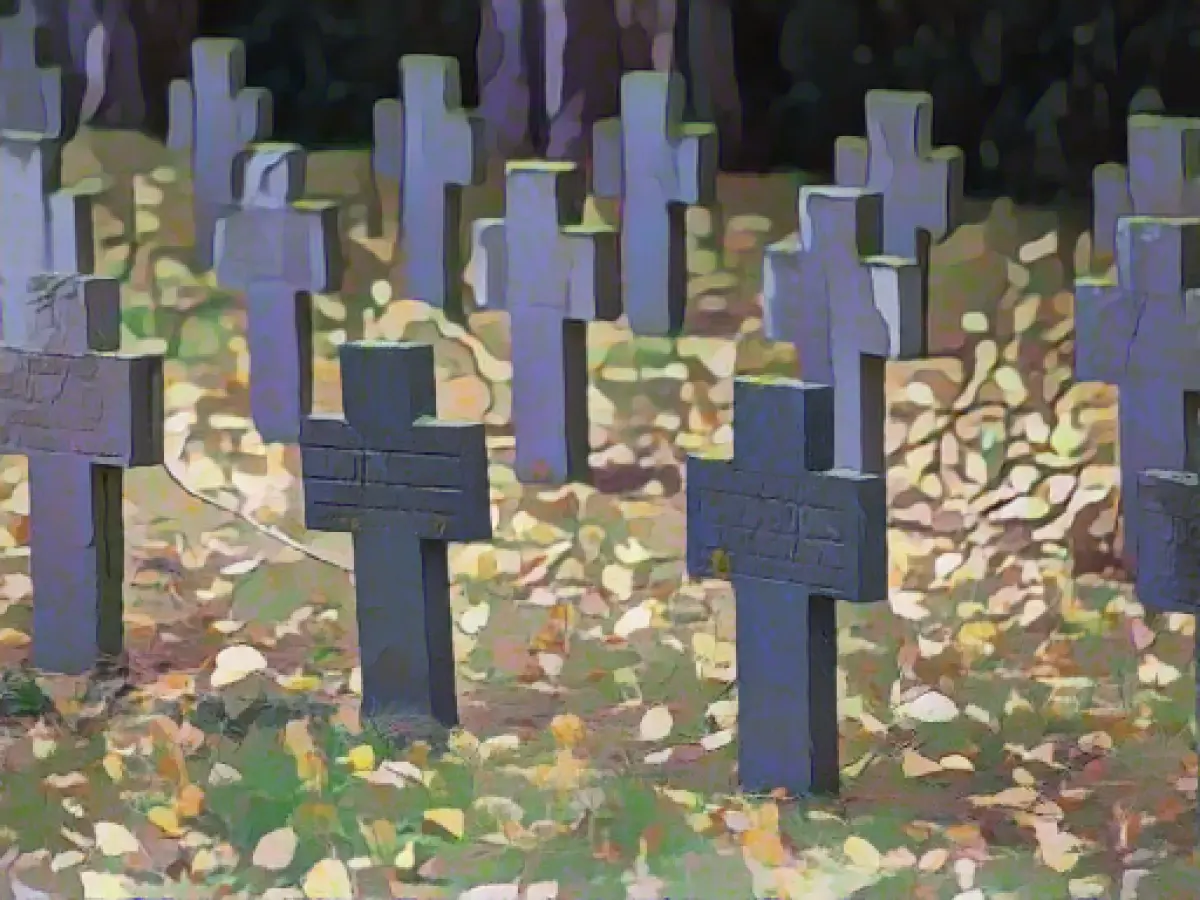Decades after the war, unearthed corpses continue to appear at the Stare Czarnowo cemetery in Poland
Each year, a staggering 300 to 800 German soldiers, who perished during the Second World War, find their final resting place in Stare Czarnowo's cemetery. Karsten Richter, the Managing Director of the War Graves Commission MV, shared this revelation during a National Day of Mourning ceremony. Despite initial expectations that discoveries would subside in the early 2020s, the cemetery still hosts unidentified graves and deceased soldiers. The Volksbund Deutsche Kriegsgräberfürsorge receives an average of 30,000 inquiries per year related to individual soldiers, spanning both World Wars. Families, often from the grandchildren's generation, seek closure surrounding their lost relatives.
This sentiment remains heartfelt, even 80 years postwar. Richter emphasized that similar sentiments will persist during conflicts in regions such as Ukraine and the Middle East, where war's devastating impacts linger throughout generations.
Stare Czarnowo’s military cemetery is one of 13 such sites in Poland and can accommodate around 32,500 graves. Since its inception, about 24,000 coffins have been interred here, resulting in 345 burials in 2022. A ceremony honoring Mecklenburg-Western Pomerania's Interior Minister Christian Pegel (SPD) took place at the cemetery in 2022.
The German War Graves Commission, a humanitarian organization tasked with maintaining and caring for foreign war dead's graves, oversees over 12,000 war graves across Germany, housing approximately 1.8 million dead from both World Wars.
The Second World War remains intriguing, inspiring countless families to inquire about their relatives' fates. The war's enduring impacts testify that the human toll of war is timeless, as evidenced through ongoing discoveries in various conflicts, such as those in Ukraine and the Middle East.
Sources:
Insights:
Although the finding of deceased soldiers from the Second World War is less frequent than in past years, it continues to have a profound impact on families and future generations. The discovery of these individuals often necessitates painstaking forensic analysis to establish their identities, thus providing closure for families who have been searching for their lost loved ones for decades. These finds are also a stark reminder of the war's brutal impact, preserving the memory of those who made the ultimate sacrifice and contributing to a better understanding of the conflict's impact on both individuals and societies. Ethical considerations arise regarding handling these remains, including repatriation and appropriate treatment of war graves. Additionally, these discoveries have educational value, teaching future generations about war's human costs.








